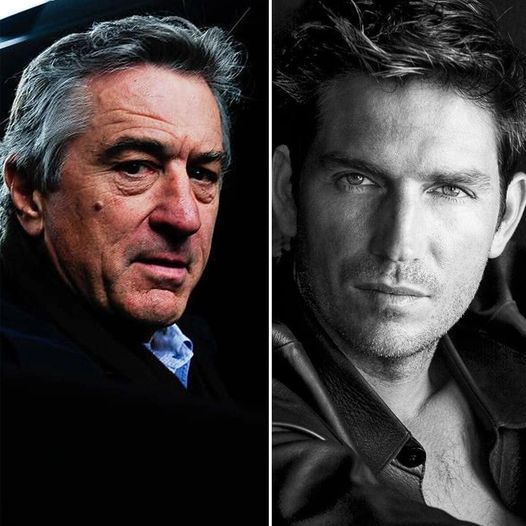Actor Jim Caviezel has made headlines by calling renowned actor Robert De Niro an “awful, ungodly man,” and refusing to work with him. This unexpected stance has stirred Hollywood, igniting discussions about the balance between personal beliefs and professional relationships.
This article explores the specifics of Caviezel’s bold decision, the reasons behind his refusal to work with De Niro, and the broader implications of such outspoken statements in the film industry. Jim Caviezel, best known for his role as Jesus Christ in Mel Gibson’s “The Passion of the Christ,” is recognized for his steadfast moral principles and deep Christian faith.

On the other hand, legendary actor Robert De Niro is celebrated for his diverse roles and candid opinions on various social and political issues. Caviezel’s reluctance to collaborate with De Niro underscores a conflict between personal morality and the collaborative nature of filmmaking.
In a recent interview, Caviezel was asked about potential collaborations with De Niro. He emphatically responded, “I won’t work with Robert De Niro. He is a terrible, ungodly man.”
The strong language of his statement immediately caught the attention of fans and the media, prompting questions about the specifics of the alleged rift between the two actors. Although Caviezel did not divulge details in the interview, it is evident that his decision stems from a fundamental clash of beliefs.
Caviezel’s outspoken Christian beliefs and commitment to projects that align with his moral compass suggest he believes there is a disconnect between De Niro’s public persona and past actions.
The lack of details in Caviezel’s statement has led to speculation and heightened public interest in the underlying dynamics. It’s not uncommon for actors to voice their opinions on various issues, including choosing not to work with certain individuals, in the entertainment industry.

However, reactions to Caviezel’s bold proclamation have been mixed. Some applaud him for adhering to his convictions, viewing it as a rare expression of honesty in an industry often criticized for moral flexibility. Others contend that making such public statements is unwise, potentially limiting future career opportunities and perpetuating industry divides.
Caviezel’s refusal to work with De Niro brings to light broader issues about how actors navigate their personal beliefs within the cooperative, often contentious landscape of Hollywood. While diverse opinions and expressions have historically benefited the craft, there are increasing instances where performers set boundaries based on personal convictions.
This incident reflects the evolving nature of Hollywood, where individuals are willing to stand by their values, even if it risks their careers. The entertainment industry has seen cases where actors’ public statements have either bolstered or hindered their careers. Caviezel’s refusal to work with De Niro may resonate with like-minded individuals who admire his unwavering commitment to his beliefs.




